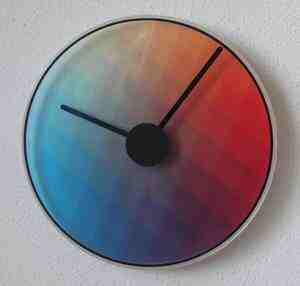2. PHILOSOPHY OF TIME
2.a) Classic time concepts
2.a.1. The subjective perception of time
Time is a very philosophical concept since each person perceives it differently according to the activity that is taking place, and even the state of mind. It reminds of the fundamental dichotomy of perception-reality of philosophy that contributes so many discussions, many of which are useless because they place themselves outside of natural logic or indicate a dead end of themselves.
Moreover, time concept goes with life itself - it is hard to imagine life without its existence.
Time is the global variable that our brain uses to order the information it receives o generates.
This concept of time is held by children so little, that the world is “their world,” and they are the drivers of the time. They think that, when they sleep, the world is waiting immobile for them to wake up and that everything should be the same as when they went to bed.
It is evident that the subjective perception of real-time radically changes. When we are sleeping, it is practically inexistent, only when dreaming, we are conscious of its passage, but we usually have no idea of how much time we have been in a particular dream.
When we are awake, we also have a variable perception of time. When we are busy, it seems that flies by; on the contrary, when we feel bored, it seems it slows down.
Another similar effect of the speed of time occurs due to our mood. It also seems it goes by quickly if we are happy. Meanwhile, if we have a strong desire for an event shortly to take place, it looks it stops as it was trying to go against us.
In short, any activity, whether physical, mental, or emotional, significantly affects the subjective perception of time, without us having the means to measure its small variations accurately.
2.a.2. Absolute time concept as an objective concept
All children go through a phase when they develop the objective time concept to understand why many events have occurred, and they were not aware of them. They merely have been asleep.
To avoid the subjectivity of its perception and to be able to communicate and recognize temporal aspects, an abstract concept appears, which one tries to measure with scientific instruments like clocks.

The main characteristic of this concept of time is to be absolute. It does not depend on any external or internal variable to the individual. It is an abstract concept, but it is real like life itself.
Throughout history, humanity has been developing increasingly accurate mechanisms to measure objective time, ending up with impressive results in the reduction of the margins of error: the atomic clock.
However, an exact measurement is not possible since all mechanisms have limitations due to their nature. The only perfect clock would be invisible and abstract.
The post-Newtonian model of Global Physics maintains absolute time and space and satisfactorily explains the same phenomena of Modern Physics, such as the orbit of Mercury, and some more such as the electronic configuration of the atom or energy and dark matter. In its book Physics and Global Dynamics, it analyzes the movement of the mass on the Global Aether and the light on the LUM Aether (Luminiferous, universal, and mobile) or gravity field.
2.b) The definition of relativistic time
For metaphysics or dark reasons, Modern Physics chooses a relative definition of time by conditioning it to its measure without setting specific circumstances, instead of looking for a rule that conforms to the absolute, intuitive concept and, therefore, much more effective in understanding reality.
The current definition of a second is the duration of 9,192,631,770 periods of radiation corresponding to the transition between the two mega-thin levels of the ground state of the isotope 133 of the cesium atom, in specific state and conditions. Also, the definition of a meter is the distance that light travels in a vacuum during 1/299,792,458th of a second.
Consequently, the meter definition derives from the second definition. If the duration of second changes, the length of the meter must also change to maintain the axiom of constant speed of the light as explained in the section about relative time of the book Theory of Relativity, Elements, and Criticism.
When Mª José finishes the page on metaphysics,
she innocently asks Pollwick:
–What do you think about it?–
Pollwick answers her:
–It is quite good but, dunno,
I think I see everything from another dimension:
Poor the one who is not proud of what she is
and does not appreciate what she is not! –
Somewhat disconcerted and trying to disturb him,
Mª José adds:
–I have a faggoty friend who likes vampires.–
But Pollwick continues with his ideas:
–Well, my dear friend Dick suffers from vertigo.–
